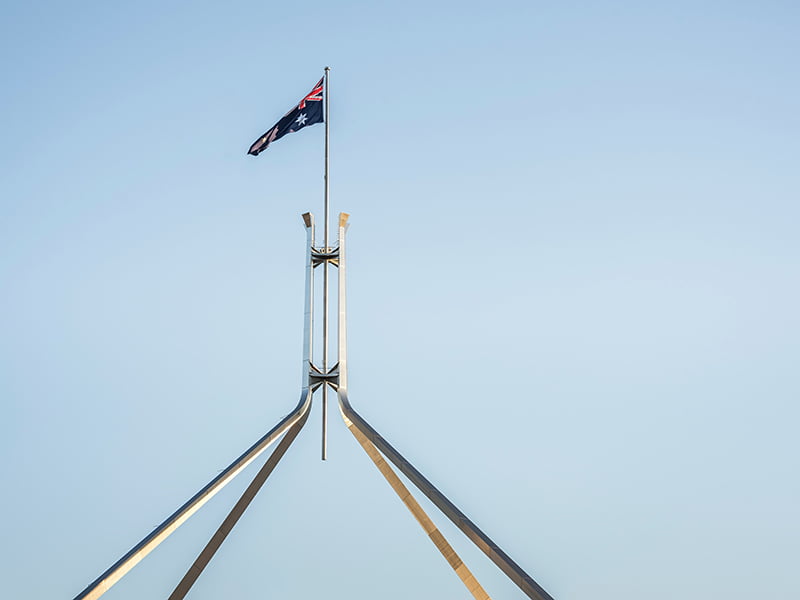The Office of the Australian Information Commissioner (OAIC) is “increasingly burdened” by the weight of its freedom of information work and requires additional resourcing to fulfil its roles, according to a new report.
The report from independent think tank, the Centre for Public Integrity, comes as the Australian Information Commissioner and Privacy Commissioner Angelene Falk pleads with the new government for more funding to keep up with an increase workload.
Titled ‘Delay and Decay: Australia’s Freedom of Information Crisis’, the report, released on Monday, reveals “inordinate delay, under resourcing and the abuse of statutory exceptions” have together “undermined” the FOI scheme.
It said a growing “culture of secrecy” was at least partially responsible, with the proportion of FOI requests granted in full at first instance “falling by over 30 per cent” since 2011-12. In the same timeframe, there has been a 50 per cent increase in claims refused in full.

The factors have led to a “clogged and slow system littered with hurdles”, with “increasing delays at first instance, internal review and OAIC review [stages]” that are incomparable with the increase in the number of FOI requests.
The report said that while an “increasingly burdened” OAIC had been able to keep up with the volume of requests until 2014-15, the “growth in appeals… has significantly outpaced [its] ability to finalise them” since 2015-16, leading to “continual increase in the average time to finalise reviews”.
In 2020-21, the OAIC received 1224 review requests and finalised just over 1000 reviews, more than double the number of requests its received and finalised in 2015-16. Average time to finalise a review is now more than eight months.
Approximately 40 per cent of OAIC’s discretionary reviews also set aside the original decision, meaning “many meritorious claims are unduly refused and delayed by the current FOI system”, the report noted.
The significant delays and inability to complete OAIC merits reviews in a timely fashion is at least “partially attributable to the lack of sufficient staff to manage the increasing number of claims”, a concern repeatedly raised by the office itself.
“Since 2011-12, the number of FTE staff per OAIC review request received has fallen by 50 per cent,” the report said, adding that the OAIC in 2019 asked for 50 per cent more staff to manage review requests.
The Centre for Public Integrity has called for the OAIC to be “appropriately resourced” with a set ratio of FOI officers to FOI applications. This would “reduce current delays and better fulfil its training and oversight mandate”.
The think tank also asked that a joint cross-party parliamentary committee be established to “provide ongoing oversight and accountability of the integrity of departmental FOI decision-making processes”, and for disciplinary action where officers repeatedly make decisions that are later overruled.
Australian Information Commissioner and Privacy Commissioner Angelene Falk has reportedly appealed to the new federal government for more funding in the October Budget, warning her office “cannot keep pace” without it.
The source of the “most critical budget pressure” is the OAIC’s FOI functions, according to Ms Falk’s letter to Attorney-General Mark Dreyfus. She has also warned that enforcement action through the courts is also being impacted.
OAIC is pursuing Meta in the Federal Court over alleged privacy breaches relating to Facebook’s Cambridge Analytica data harvesting scandal. Meta settled a class action lawsuit into the privacy breach in the US late last month.
The federal government is also yet to confirm whether it will split Falk’s dual roles in two, in recognition of the increased workload.
“Currently, Ms Angelene Falk holds dual appointments as Australian Information Commissioner and Privacy Commissioner,” Attorney-General Mark Dreyfus said in answers to question on notice last month.
The former government appointed its long-time government general counsel Leo Hardiman as Australia’s Freedom of Information Commissioner in March following repeated calls for a dedicated commissioner.
The OAIC will likely receive more solid funding through the ongoing review of Australia’s privacy laws, but a final report is not expected to be presented to the government before the end of this year.
Do you know more? Contact James Riley via Email.

